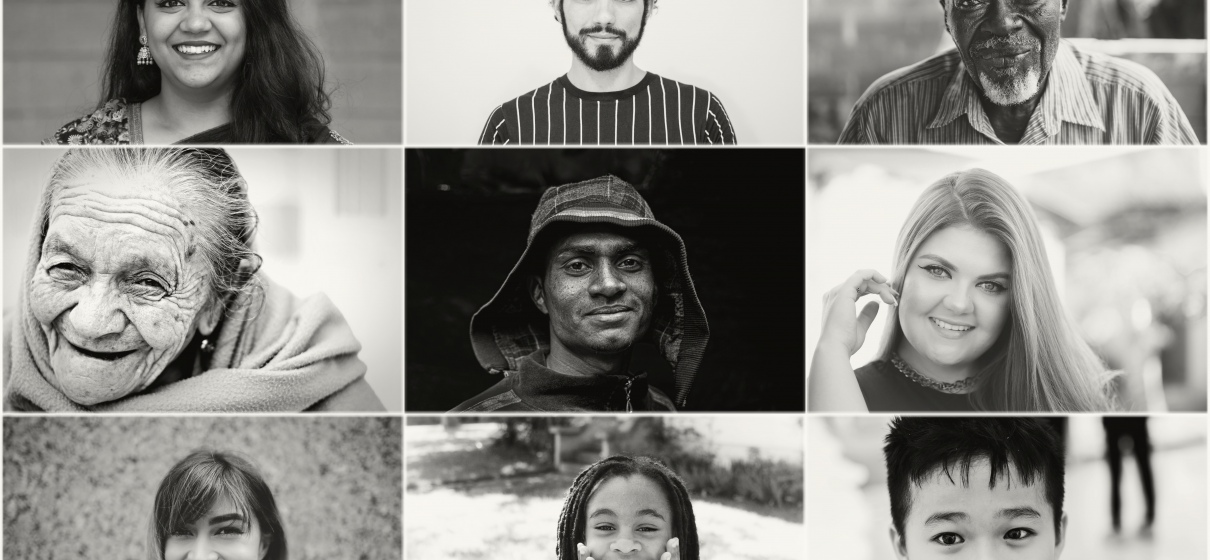Imago Dei: Beyond Dignity
Throughout history, the church has been called to be the champion of the vulnerable, the weak, and the persecuted.
This call for justice — whether to fight racial discrimination, defend the lives of the unborn, or end human trafficking — is an appeal to see every human being through the eyes of the Christian narrative which proclaims mankind’s creation in the image of God, or imago dei.
This truth is the foundation for all human rights.
All people have inherent dignity (i.e. are valuable) not because of any aspect of their lives or circumstance, but because they bear the image of God. Although human dignity found within the imago dei is often enough to convince people to avoid harming others, it does not always move us towards active love. In order to move towards the empathy, sacrifice, and desire for justice we are called to as God’s people, we have to understand the depth of what it means to be made in God’s image. It can be easy to downplay the significance of the imago dei, but it isn’t merely a reason to value others. The Bible tells us:
“So God created mankind in his own image,
in the image of God he created them;
male and female he created them.” (Genesis 1:27)
In the beginning, men and women were created by God to reflect his character and represent him in this world, but because of the Fall, this image was corrupted. Humans no longer reflected the character of God to each other as intended. Instead, men and women set up their own rules and ways of life, harming one another and persecuting the vulnerable, no longer loving and ruling as God had ordained.
Even the nation of Israel, the Old Testament people of God, did not reflect the love of God toward each other, despite continual commands from God to seek justice and protect the weak. We just cannot live and love as God created us to on our own.
But, a Savior has come in whom we see the true and perfect imago dei.
“He is the image of the invisible God, the firstborn of all creation.” (Colossians 1:15)
Jesus, fully God and fully man, shows us what the image of God really looks like: loving the lost, protecting the vulnerable, and sacrificing for others — even unto death. And, because of Jesus, by the grace of God, we can now walk in newness of life. Through faith in Christ, we are freed from the power of sin and filled with the power of the Holy Spirit, to reflect the image of God, loving and living as Jesus.
“For those whom he foreknew he also predestined to be conformed to the image of his Son, in order that he might be the firstborn among many brothers.” (Romans 8:28)
Imago dei requires us to view all people as having inherent value and dignity. However, the imago dei is not only descriptive, it is prescriptive.
Image-bearing is not just a title, it is a calling.
We — those walking in the footsteps of Jesus — defend the rights of the unborn because every life is valuable. We should also care for orphans because we are representatives of God in his kingdom. We — the church — refuse to persecute the vulnerable because every person bears God’s image and has inherent dignity. We should also protect and love the persecuted, because as we are conformed into the image of the Son, we reflect his compassion and sacrifice.
One day, Jesus will return and make all things new: a restored world and perfect justice for all.
He will.
We rest in this certainty.
Until then, we live in the already and not yet, where there is uncertainty, injustice, and suffering.
Let’s remember that we were created in the image of God – a description of all people, and a call to Christians to be conformed into the likeness and love of our Savior,
Let’s spend less time creating our own rules and ways of life, and focus on reflecting to others a glimpse of what the kingdom of God looks like: peace, love, unity, and justice.
Let’s cling to Jesus.
- How to Find Real Rest During Spring Break - March 9, 2023
- A Tale of Two Christmases - December 22, 2022
- Is December 25 Really When Jesus Was Born? - December 23, 2021

